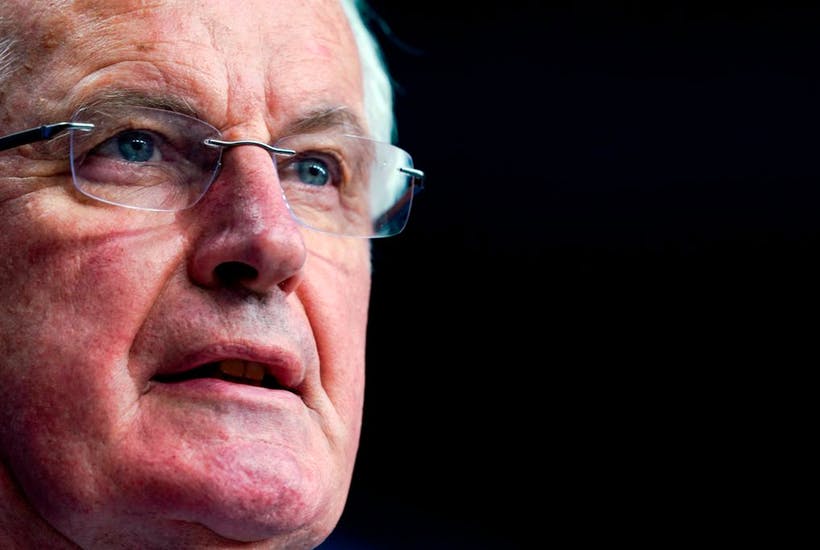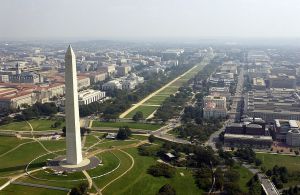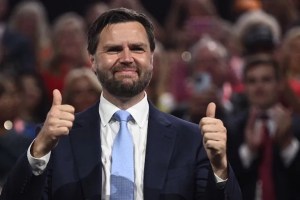What would Disraeli make of Brexit? His advice to ‘read no history; nothing but biography, for that is life without theory’ is a useful starting point. Brexit has been – and continues to be – a hodge-podge of biographies where human weaknesses, strengths and foibles chafe and collide. The upcoming clash between the EU’s chief negotiator Michel Barnier and his British counterpart David Frost is no exception.
On March 2, Barnier, who is responsible for leading the ‘Task Force for relations with the United Kingdom’ will face Frost, the British head of ‘Taskforce Europe’, across the negotiating table for the first time. These two titles might sound mundane but they are vital for understanding the difference in how the EU and Britain view the purpose of the coming months. Barnier’s title is solemn and serious; Frost’s is somewhat irreverent.
In the European Commission’s corridors there is an addiction to ‘taskforces’. It signifies military decisiveness. But above all it means maintaining conformity with Brussels’s norms. Following the 2008 financial crash, heavily-indebted Eurozone member-states that were put through the EU austerity ringer had taskforces assigned to bring them into line with European requirements. As a member of the lead French team’s remit to remodel the Greek public sector in the EU-led ‘troika’ reforms — which was, inevitably, called ‘Taskforce Greece’ — I remember this well.
For the EU, then, Barnier’s Brexit ‘taskforce’ is business as usual: its purpose is to protect the EU’s way of doing things. While for Britain, borrowing the ‘Taskforce’ epithet smacks of nose-thumbing (as does No. 10’s description of the group as ‘small and agile’; the suggestion being that the EU is anything but).
So if we can learn this from the names the two sides have adopted in these talks, what can we predict will unfold over the coming months based on the differences between the two negotiators themselves?
Frost, the Derby man with an Oxford first in History and French who majored in medieval history, doesn’t seems averse to a touch of Rabelaisian ribaldry. By contrast, Barnier, the Frenchman 14 years his senior from the mountains of Savoy, graduate of one of France’s top, but dour, business schools (Ecole Supérieure de Commerce de Paris), is earnest, methodical and legalistically formal.
The two have had equally different professional careers. Frost is a professional diplomat with a stint as ambassador to Denmark. But he is also a Brexiteer sufficiently jaundiced by the diplomatic service’s stance to retire in 2013; Barnier is a center-right Gaullist politician with several ministerial stints turned European commissioner and Euro-enthusiast. Expect the negotiating styles to reflect that difference. Frost is a trained medievalist careful to marshal his evidence. But he is also imaginative in the avenues he opens up and not afraid to attempt the occasional flourish. Meanwhile Barnier is the well-prepared, patient climber of mountains; wary of wandering from the planned path, but dogged in his pursuit of the summit.
But as different as their biographies might seem, Frost and Barnier share some features. As David Frost charmingly but pointedly reminded ‘Michel’ in his recent lecture, he too is a Gaullist, sharing the general’s belief in the independence of nation-states:
‘I know that Michel is a great admirer of Charles de Gaulle. He probably doesn’t know that I am as well. De Gaulle was the man who believed in a Europe of nations. He was the man who always behaved as if his country was a great country even when it seemed to have fallen very low and thus made it become a great country yet again. That has been an inspiration to me, and those who think like me, in the low moments of the last three years.’
More importantly, both Frost and Barnier have a shared experience of the Brussels machine, albeit leading them to very different conclusions. In 1993, before Barnier’s break for Brussels in 1999, Frost had been first secretary for economic and financial affairs at UKRep in Brussels. Here he dealt with European enlargement and its implications for the EU budget. He was later the FCO’s deputy head for the European Union external department dealing with trade policy, later becoming director of the FCO’s European Union department. As Frost recently explained, here his ‘doubts about British membership of the EU’ first surfaced. These, he explained, ‘came principally from the fact that I could see Britain was never going to be genuinely committed to the project of turning the EU from a ‘partnership agreement in trade’ to an ‘object of reverence’’.
Barnier, by contrast, was a late convert to the Brussels’ world. And as with so many late converts, his passion is intense. For five years from 1999 he was European commissioner for regional policy. He returned to the EU in 2009 for a brief spell as an MEP, before becoming (a year later) European commissioner for single market and services. Here he negotiated European banking reform directly with the City of London. Barnier later sought election as president of the commission in 2014, only to be beaten by Jean-Claude Juncker.
But Michel Barnier is always content to play the long game. After leading the Brexit withdrawal negotiations, he let it be known he was interested in becoming a European commissioner once more. Considered too big a beast by the new president Ursula von der Leyen, he was turned down. At 69, he probably still lingers after another top job in the EU. But for Barnier to carry on will require him to make Brexit a success for Brussels and not for Britain.
The Frost-Barnier negotiations will take place every couple of weeks, alternating between Brussels and London. Unlike in past Brexit negotiations, the destinations for each side are clear. For the moment they are on opposing pathways. Barnier’s taskforce seeks alignment; Frost’s divergence. The pre-match skirmishing has been intense.
Does history offer any solace or reassurance that things could end amicably? Perhaps not, other than a sorry tale. In the early 1920s, France and Britain were in long negotiations over a future military alliance that the French deeply desired and Britain cared little for. Nevertheless, the formidable and imperious British foreign secretary Lord Curzon was eventually brought to tears by his diminutive, meticulous and legalistic counterpart Raymond Poincaré.
In the course of another interminable meeting with Poincaré, Curzon asked the permanent under-secretary at the Foreign Office, Sir Charles Hardinge, to accompany him out of the room. Once outside, the great Curzon broke down: ‘Charley’, he exclaimed, ‘I can’t bear that horrid little man! I can’t bear him’.
Curzon eventually left the Foreign Office in 1924, never to return. Poincaré remained premier for much of the 1920s. But the French never got their peace-time alliance. Perhaps this lesson from history shows that whoever triumphs in the upcoming negotiations might still not get exactly what they were looking for.






















